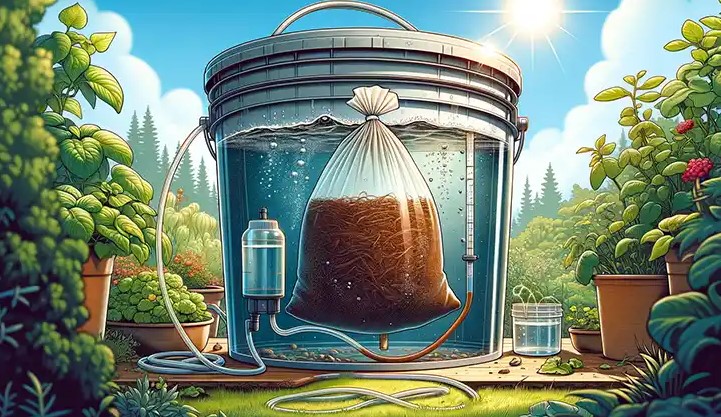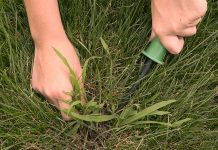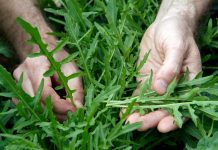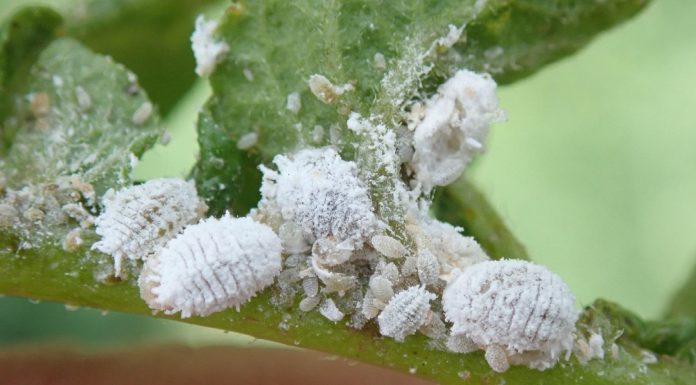Embracing the essence of sustainability, compost tea is a liquid gold elixir for your garden, infusing soil and plants with beneficial microorganisms that enhance growth and vitality. In this guide, we delve into creating your own compost tea brewer and concocting the most nutritious tea for your plants.
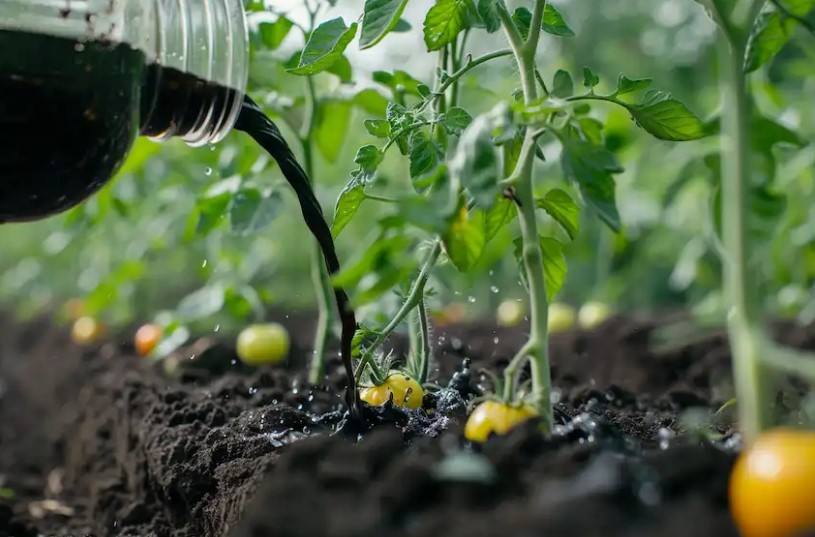
Part 1: Crafting Your Compost Tea Brewer
To begin, you’ll construct a simple yet effective compost tea maker using everyday items. Here’s what you’ll need:
- A sturdy 5-gallon bucket
- An aquarium pump powerful enough for the size of your bucket
- Approximately 4 feet of plastic tubing
- An air stone
- A nylon stocking
- Quality compost
Instructions:
- Place your air stone at the bottom of the bucket. This little device is crucial as it diffuses air into the water, creating an oxygen-rich environment necessary for aerobic bacteria to thrive.
- Connect one end of the plastic tubing to the air stone and the other end to the aquarium pump. Ensure there are no kinks in the tubing to allow for smooth airflow.
- Fill the bucket with clean, dechlorinated water. If you’re using tap water, let it sit for 24 hours to allow any chlorine to dissipate, as chlorine can harm the beneficial bacteria you’re aiming to cultivate.
- Add your compost to the nylon stocking to create a “tea bag,” and then immerse it in the water. The stocking acts as a filter, preventing compost particles from dispersing into the water while allowing the microbial life to seep out.
- Secure the aquarium pump to the side of the bucket, ensuring it is above water level to prevent any siphoning mishaps.
- Turn on the pump and let your brewer work its magic. You should see a plethora of bubbles surfacing, indicating that the air stone is properly oxygenating your compost tea.
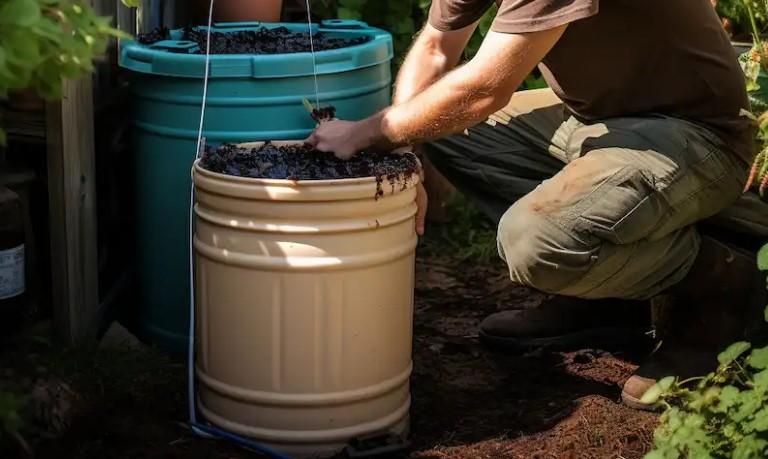
Part 2: Brewing the Best Compost Tea
With your DIY compost tea maker ready, it’s time to brew the tea. Follow these steps to create a potent batch of compost tea:
- Ratio: Aim for a compost to water ratio of about 1:5. For a 5-gallon bucket, this means using approximately 1 gallon of compost.
- Brew Time: The brewing process typically takes between 24 to 36 hours. Brewing beyond 36 hours can result in an anaerobic environment, which could harm your plants.
- Aeration: Keep the air pump running continuously to supply ample oxygen. This encourages the growth of beneficial aerobic microbes.
- Stirring: Occasionally stir the compost bag to ensure even exposure to the water and prevent any anaerobic pockets from forming.
- Additives: To boost the microbial activity, you can add unsulfured molasses at a rate of 1-2 tablespoons per gallon of water at the start of the brewing process.
- Usage: After brewing, apply the compost tea to your plants as soon as possible for the best results. Dilute the tea with water if it’s too strong, aiming for a light brown color, similar to weak tea.
- Application: You can use compost tea as a foliar spray or soil drench. For foliar applications, strain the tea to remove any particles that could clog the sprayer, and apply in the early morning or late afternoon to avoid leaf burn.
- Frequency: Feed your plants with compost tea every 2-4 weeks during the growing season for optimal health.
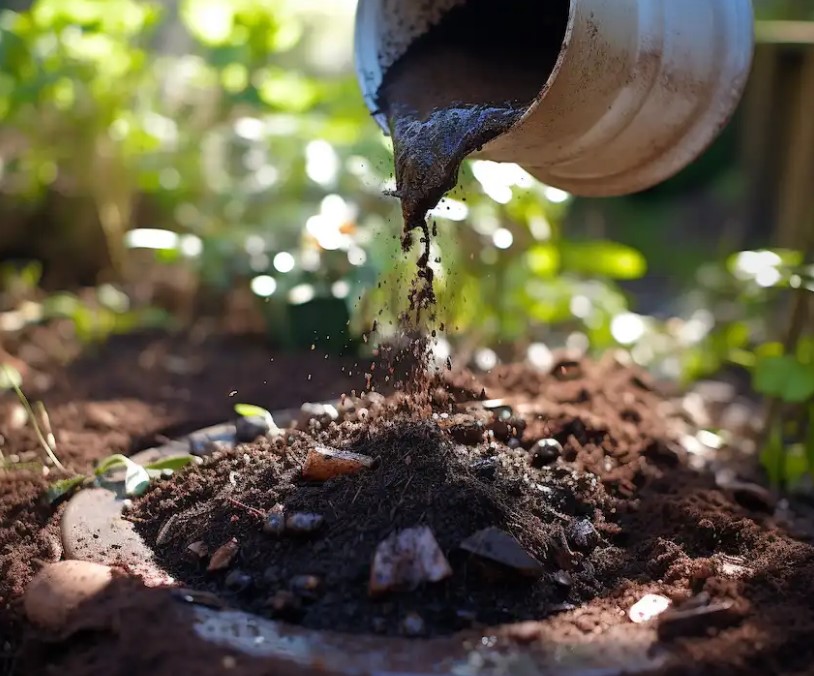
By following these meticulous steps, you’re not only recycling nutrients but also fostering a microecosystem that will naturally bolster your garden’s resilience and productivity. Cheers to the alchemy of compost tea!


